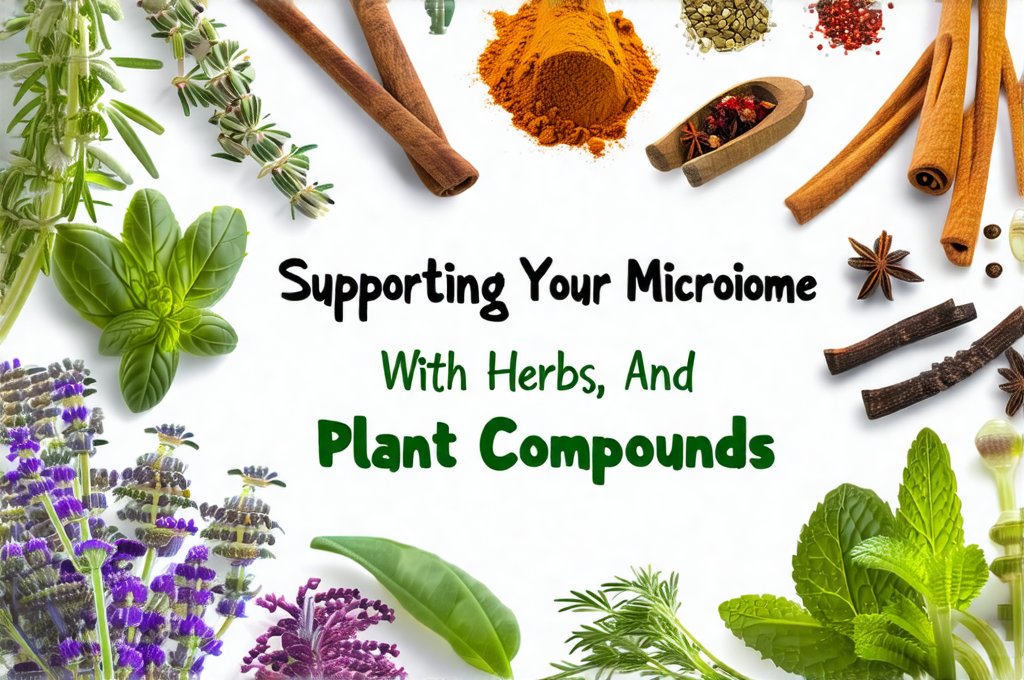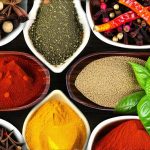The intricate world within us – our microbiome – is increasingly recognized as fundamental to overall wellbeing. For decades, we’ve focused primarily on combating ‘bad’ bacteria, often with broad-spectrum antibiotics which, while sometimes necessary, can disrupt the delicate balance of microbial ecosystems residing in our gut, skin, and other parts of the body. Now, research reveals that cultivating a diverse and thriving microbiome is paramount to health, influencing everything from digestion and immunity to mental wellbeing and even chronic disease risk. This isn’t about eliminating bacteria; it’s about fostering a harmonious community where beneficial microbes can flourish.
Traditionally, cultures around the world have intuitively understood this principle, employing herbs, spices, and plant-rich diets not just for flavor but also for their subtle yet powerful effects on gut health. These botanicals offer an array of compounds – prebiotics (food for bacteria), polyphenols (antioxidant & microbe-modulating substances), and even compounds that directly support microbial diversity – offering a natural and holistic approach to microbiome support, moving beyond solely probiotic supplementation which introduces new microbes but doesn’t necessarily ensure their survival or integration. This article will explore how we can leverage the power of nature’s pharmacy to nurture our internal ecosystems.
The Power of Polyphenols & Fiber-Rich Foods
Polyphenols are a vast family of plant compounds known for their antioxidant properties, but their impact extends far beyond simply neutralizing free radicals. They act as modulators of the microbiome – meaning they aren’t directly antibacterial, but rather shape the composition and activity of gut microbes. Different polyphenols favor different bacterial species; some promote beneficial bacteria like Bifidobacteria and Lactobacilli, while others discourage less desirable ones. This selective pressure leads to a more balanced and resilient microbial community. Sources of polyphenols are abundant in our diet: berries, dark chocolate (in moderation!), green tea, apples, onions, and especially spices such as cinnamon, cloves, and turmeric.
Fiber is another cornerstone of microbiome health. It’s the primary food source for many beneficial gut bacteria. Unlike refined carbohydrates that are quickly digested in the upper digestive tract, fiber reaches the colon relatively intact, where it’s fermented by microbes into short-chain fatty acids (SCFAs) like butyrate, propionate, and acetate. These SCFAs are vital for gut health – they nourish the cells lining the colon, reduce inflammation, strengthen the gut barrier, and even influence brain function. A diet lacking in fiber essentially starves beneficial bacteria, allowing less desirable species to dominate.
Integrating both polyphenols and fiber-rich foods is key. The combination creates a synergistic effect: polyphenols help shape microbial composition while fiber provides the fuel for those beneficial microbes to thrive. This isn’t about drastic dietary changes; small consistent additions – sprinkling cinnamon on your oatmeal, adding berries to your yogurt, or swapping white rice for brown rice – can make a significant difference over time. Consider incorporating more prebiotic-rich foods such as garlic, leeks, asparagus, and bananas alongside polyphenol-rich choices. For those needing help with dietary planning, explore resources like meal organization techniques.
Herbs That Support Digestion & Microbial Balance
Many traditional herbal remedies have long been used to support digestion and gut health, often working through mechanisms that we are now beginning to understand from a scientific perspective.
- Ginger is well known for its ability to soothe digestive upset, but it also possesses prebiotic effects, promoting the growth of beneficial bacteria like Lactobacillus and Bifidobacterium. It can help reduce inflammation in the gut, easing symptoms of bloating and indigestion. Ginger’s compounds may also enhance gut motility, preventing constipation.
- Peppermint is another digestive aid that has shown promise in modulating the microbiome. Menthol, a key component of peppermint oil, can relax the muscles of the digestive tract, relieving spasms and discomfort. Studies suggest it might also influence microbial diversity by promoting certain beneficial species. Peppermint tea or enteric-coated capsules are popular delivery methods.
- Chamomile isn’t just for relaxation; its anti-inflammatory properties extend to the gut. It has been shown to reduce intestinal permeability (“leaky gut”) and promote a healthy balance of gut bacteria. Chamomile tea can be particularly soothing for those experiencing digestive stress or anxiety, which often impacts gut function. Managing these sensitivities is vital, so consider structuring meals around your body’s natural rhythms for optimal digestion.
It’s important to note that herbal remedies aren’t a quick fix. Consistent use and mindful integration into a holistic lifestyle are crucial for optimal results. Always consult with a qualified healthcare professional before starting any new herbal regimen, especially if you have underlying health conditions or are taking medications. Furthermore, sourcing high-quality herbs from reputable suppliers ensures potency and purity.
Turmeric & Curcumin: Anti-Inflammatory Powerhouses
Turmeric, the vibrant yellow spice commonly used in Indian cuisine, has gained widespread recognition for its potent anti-inflammatory properties, largely attributed to curcumin, its active compound. Chronic inflammation is a major disruptor of gut health – it can damage the gut barrier, promote dysbiosis (microbial imbalance), and contribute to various chronic diseases. Curcumin helps counteract this by reducing inflammation throughout the body, including in the digestive tract.
However, curcumin’s bioavailability—its ability to be absorbed and utilized by the body—is relatively low on its own. Combining turmeric with piperine (found in black pepper) dramatically enhances absorption. Additionally, formulating curcumin into liposomal or nanoparticle forms can significantly improve bioavailability. Beyond its anti-inflammatory effects, emerging research suggests that curcumin may also directly modulate the microbiome, influencing bacterial composition and promoting the growth of beneficial species.
Integrating turmeric into your diet is easy: add it to soups, stews, smoothies, or curries. Consider supplementing with a high-quality curcumin supplement formulated for enhanced absorption if you’re looking for a more concentrated dose. Remember that consistency is key—regular intake offers the most significant benefits. Curcumin isn’t just about reducing inflammation; it’s about creating an environment where beneficial gut bacteria can thrive. If you’re recovering from something like surgery, post-surgery eating strategies can help incorporate anti-inflammatory foods.
Spices as Microbial Modulators: Beyond Flavor
Spices aren’t merely culinary additions; they are concentrated sources of bioactive compounds that exert profound effects on our microbiome. Cinnamon, for instance, contains cinnamaldehyde, which has demonstrated antimicrobial properties against certain pathogenic bacteria while leaving beneficial bacteria relatively unharmed. It can also help regulate blood sugar levels, preventing spikes that can negatively impact gut health.
Cloves are another potent spice rich in eugenol, a compound with anti-inflammatory and antioxidant effects. Eugenol may inhibit the growth of harmful microbes and promote microbial diversity. Similarly, cardamom, with its unique flavor profile, contains compounds that support digestion and reduce bloating. These spices offer a natural way to subtly modulate your microbiome while enhancing the flavour of your food.
- Using a diverse range of spices in your cooking is an excellent strategy for promoting microbial balance.
- Experimenting with different spice blends can also add variety and flavor to your meals.
- Consider incorporating spices into beverages, such as cinnamon tea or turmeric lattes, for an extra boost of health benefits. For those feeling fatigued, meal planning can simplify meal preparation and ensure consistent nourishment.
The key takeaway is that supporting our microbiome isn’t about chasing the next ‘superfood’ or relying solely on supplements. It’s about embracing a holistic approach – one that prioritizes a plant-rich diet abundant in fiber and polyphenols, incorporating herbs and spices strategically into our meals, and cultivating a mindful relationship with food. This approach not only nourishes our gut but also contributes to overall health and wellbeing. Understanding alkaline vegetables can further support your digestive system, as well as gut-friendly bowls.


















